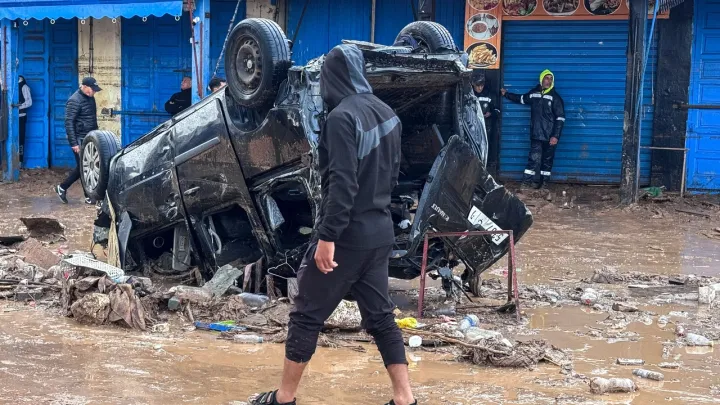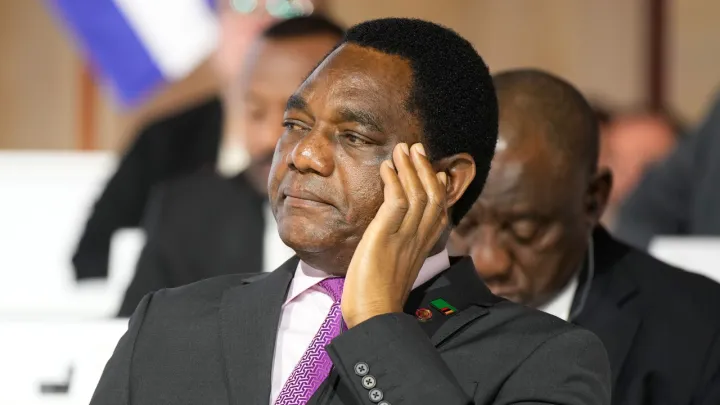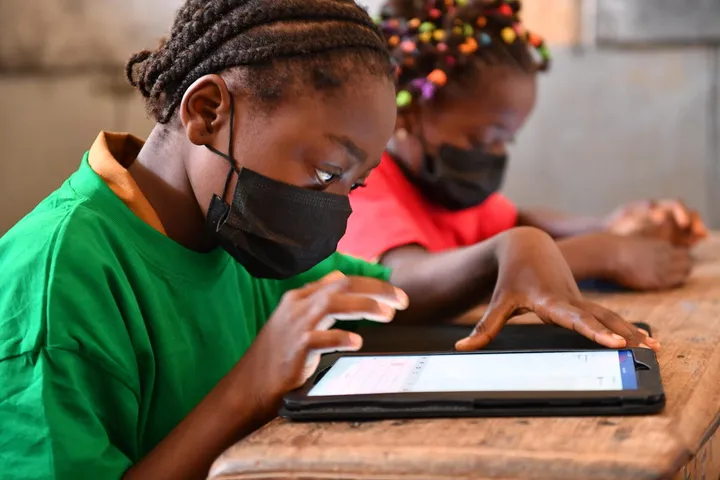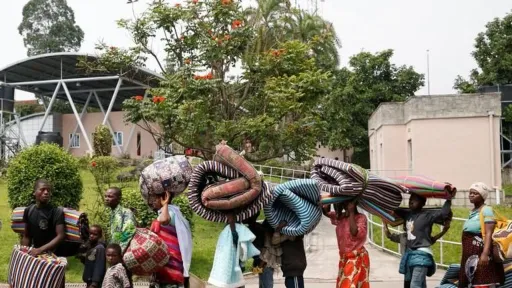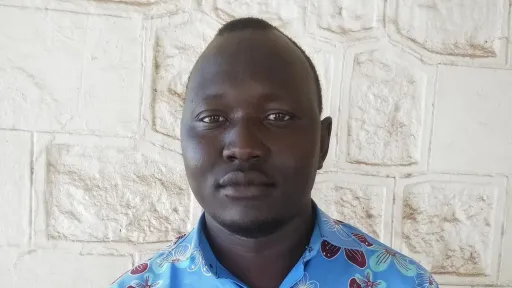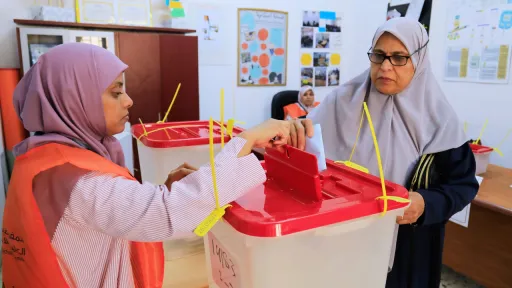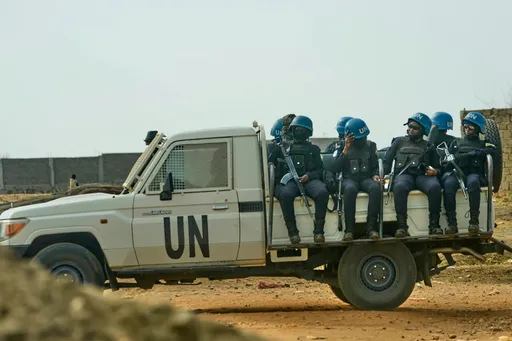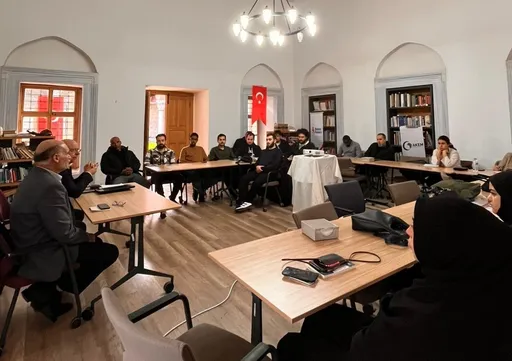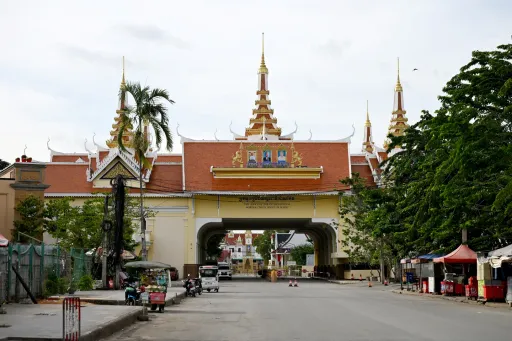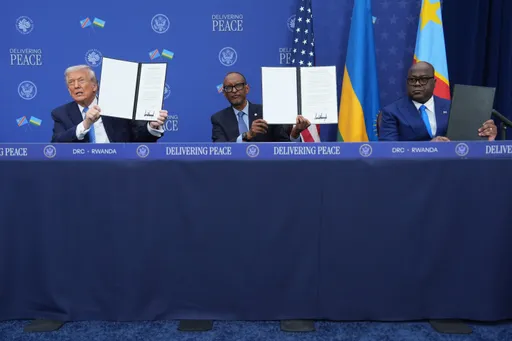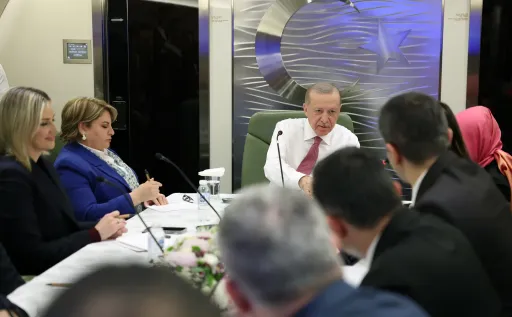By Sylvia Chebet
From a narrow alley amid the sprawling slums of Mathare, located on the eastern outskirts of the Kenyan capital of Nairobi, a group of teenagers in space crew-like white attire emerges, swords in hand.
They are fencers of the national team. Their practice arena is a section of the long, tarmacked road cutting through the dusty, densely populated informal settlement, covered in rusty iron sheet rooftops and a maze of electric cables.
Faruq Mburu Wanyoike, their coach, credits the sport of fencing with bringing the turning point in his life.
"I am so thankful for the second chance that God gave me," he tells TRT Afrika, alluding to how fencing weaned him off crime and infused purpose into his life.
Barely ten years earlier, Faruq was face to face with death in a scene of violent armed robbery.
It's a moment of dread that flashes before his eyes ever so often as he looks at his wards lurching back and forth with their fencing foils pointing at each other.
"I wouldn't want them to be drawn into the kind of life I lived back then," Faruq says between long pauses to wipe the tears flooding his eyes with his gloved hands, a helmet pressed between his left elbow and rib.
"I am emotional because they are in the same neighbourhood I grew up in. They face the same challenges I did."
Similar stories
Some of the teenage fencers have confided in their coach about experiences he knows only too well.
Faruq fears these experiences will take them down the slippery slope to crime. Teaching them fencing is his way of not just fostering their talent in the sport but also an exercise of "changing their minds" whenever they waver.
Hisfavourite phrase to the teens? "Don't let your environment define you."
Most boys and girls under Faruq's mentorship have closed school and train every weekday. Their daily sparring provides unsolicited entertainment to passers-by and vendors lining the roadsides.
"Fencing is known to be a bourgeoisie sport. We want to bridge the gap and bring the sport to the street, the neighbourhood, the ghetto," says Faruq.
Escape from crime
Harking back to his childhood days when criminal gangs controlled most of the Mathare neighbourhood, Faruq recalls how he was initiated into crime even before he had made sense of life.
The flashy lifestyles of the neighbourhood boys involved with these gangs had caught the eye of nine-year-old Faruq.
He would innocently ask his mother to let him spend time with them. She allowed him to, little knowing what her child's newfound friends were up to.
"So, off I went where they went, sat where they sat and listened to what they said," Faruq reminisces.
It wasn't long before they ushered him into their dark and dangerous world.
"They would brandish guns, clean them, count cash here and there, and I would ask myself, 'Are they police?' I was young and naive," says Faruq.
Although a child, he felt bound by an unwritten code of secrecy that prevented him from sharing what he saw with anybody.
By the time he turned 12, Faruq had been groomed to ferry guns in his school bag, a task he diligently fulfilled.
A few years later, Faruq was taught how to handle a gun. He would soon be part of the gang's crime sorties.
"I was the youngest of them all," he says. "Guns would be drawn, but I couldn't bring myself to shoot anyone…My instincts told me that it was wrong."
At that point, it also became clear to him that with crime, there was a high price to pay, including possible death. "One by one, my friends were gunned down. I realised this was a game that would end badly," he says.
Life lessons
"Crime doesn't pay, but it takes a lot from you," Faruq always tells the young fencers teetering on the edge.
He had a close shave at least twice during his days in crime. He vividly remembers how one night, the gang he was part of went after a businessman carrying three million Kenyan shillings, the equivalent of $30,000.
They waylaid him. "But to our surprise, when we approached him, he voluntarily stopped the car…We were supposed to stop him."
Faruq was confused. His criminal friends remained adamant, determined to get the money. They had no idea it was a set-up. "From there, the police were all over us. Guns blazed, and it rained bullets," he recounts to TRT Afrika.
Faruq saw two of his friends fall to a hail of bullets as he scampered for safety. A bullet grazed his rib, and another hit his leg. He took cover in a nearby river covered in filth.
"I sat in the water like that for three hours, just contemplating my life as I waited for the police to leave," says Faruq. "That's the day I decided never to return to crime."
Shortly afterwards, destiny had him cross paths with the secretary general of the Kenya Fencers' Federation, Stephen Okalo Kuya, at a dance and fitness centre.
Kuya instantly thought Faruq had an athlete's physique and asked if he would be interested in fencing. The young man had never heard of the sport and needed Kuya to show him what he meant.
"The moment I saw the blades, I recalled seeing them in movies. I instantly fell in love with the sport," recalls Faruq.
Kuya trained him for about a year before he got a scholarship opportunity in South Africa, where he obtained a fitness and coaching science certificate and a diploma in fencing in 2021.
In 2022, he went to Cairo, Egypt, for his first-ever championship and was the only Kenyan in the arena.
Afterwards, he went to Milan, Italy, for the World Senior Fencing Championships. He is set to represent Kenya again in the African Olympic Qualifiers in Algeria in 2024.
Cradle of talent
In his Mathare backyard, Faruq has 45 fencers under his wing.
His Tsavora Fencing Team Mtaani has honed 15 talented fencers who are now in the national squad.
Faruq's wards are set to represent Kenya next year in the junior and senior world championships in Saudi Arabia and Morocco, an achievement that fills him with pride.
"I want them to be the best version of themselves…As an athlete, you need to be disciplined. You need to be determined. You need to have grit," he says.
Despite funding challenges, Faruq is determined to be a catalyst of change.
He dreams of taking the sport to schools countrywide through an initiative he calls "Books & Blades" — an endeavour he believes will deliver many children and youth from the jaws of crime.

